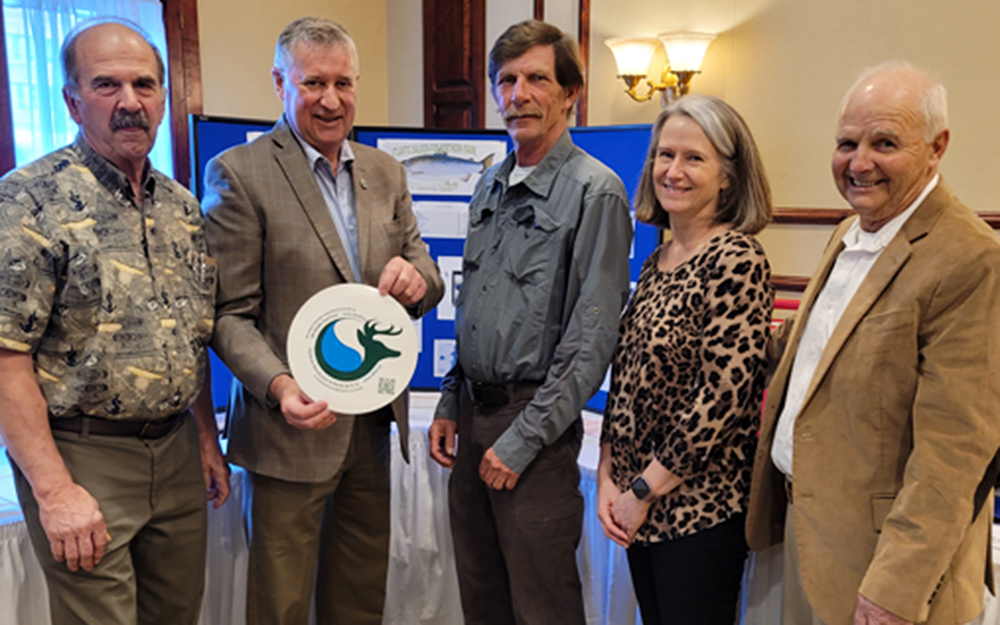
SHERIDAN, Maine — For the past several years, the St. John Basin Salmon Recovery Inc. and Atlantic Salmon for Northern Maine, affiliates of the New Brunswick Salmon Council, have partnered with the council and the Department of Fisheries and Oceans to deliver 40,000 eyed Tobique River Atlantic salmon eggs to the Dug Brook hatchery in Sheridan.
The 2021 egg transfer project was funded by the council, the northern Maine and New Brunswick salmon groups and the New Brunswick Wildlife Trust Fund. The Department of Fisheries and Oceans provided eggs.
The process is challenging because of the international border involved, and the disease testing required to allow the import of the eggs into the U.S., said Atlantic Salmon for Northern Maine President Brian Fields.
The Fredericton Research and Productivity Council conducts the disease testing at the Mactaquac Biodiversity Facility on the brood fish that produce the eggs. They certify that the eggs meet U.S. and Maine disease-free requirements.
Once the eggs are at the hatchery, they are grown to the fry stage. Some of the unfed or first-feeding fry are stocked into an Aroostook River tributary. Several hundred fry are held back and are reared in the hatchery and at a facility that is being developed in Caribou to raise adult salmon.

Steve Barker of West Chapman (left), director of Atlantic Salmon for Northern Maine, and Gary Giggey, vice president, examine salmon eggs incubating at the Dug Brook hatchery in Sheridan.
(Courtesy of Atlantic Salmon for Northern Maine)
The resolution of downstream passage problems for Atlantic salmon in the smolt stage, when they are getting ready to go out to sea, and kelt stage, adults that are finished spawning, at the Tinker Dam on the Aroostook River and the Mactaquac headpond/dam on the St. John River are crucial to the project’s success, according to Atlantic Salmon for Northern Maine.
The long-range plan is to stock the Aroostook River basin to a level approaching saturation. Because the Aroostook is a St. John River tributary, adult salmon returning from the ocean will benefit fisheries in both Canada and the United States, Field said.
The Aroostook and its twin river, the Tobique, are as big as the greater Miramichi system, and could theoretically produce as many salmon, according to the Aroostook salmon group.







